The Skyscraper Museum is devoted to the study of high-rise building, past, present, and future. The Museum explores tall buildings as objects of design, products of technology, sites of construction, investments in real estate, and places of work and residence. This site will look better in a browser that supports web standards, but it is accessible to any browser or Internet device.
23/63 WALL STREET: THE CORNER OF CAPITAL
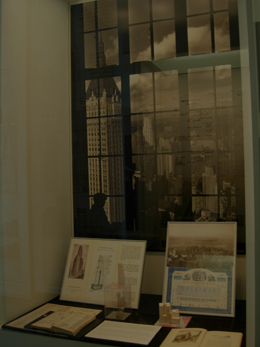
The intersection of Wall and Broad streets, with Nassau Street continuing north, has been the magnetic center of the financial district since the mid 19th century. The buildings and institutions that set the status of the place were the New York Stock Exchange, since 1865 based only a few steps from the corner, but on Broad Street; Federal Hall, which was erected as the U. S. Custom House from 1833-1842 and became the U. S. Sub-Treasury in 1862, when millions in gold and silver were held in its vaults; and the headquarters of J. P. Morgan & Co., long the country's most powerful investment bank, which occupied the address 23 Wall Street, known simply as "the Corner" in the current building from its completion in 1914 until 1989. Before constructing its 3-story limestone monument with its chamfered corner entrance, J. P. Morgan occupied space in the 6-story Drexel Building (completed 1873), so one exceptionally unusual aspect of the 1914 building was the fact that a shorter building replaced a taller one, contradicting the cardinal rule of Wall Street development.
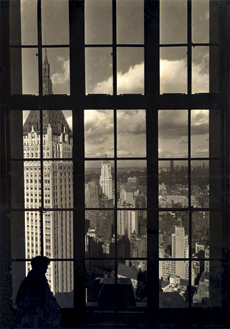
Case background image, Collection of The Skyscraper Museum.
The view from on high-- the boardroom or corner office-- holds as much the prestige as a prime address on Wall Street. The photograph on the back on this case captures the view from the top floor of 63 Wall in the early 1930s, looking north past the tower of 40 Wall, to the white Woolworth Building, world's tallest in 1913, and to the silhouette of the Empire State Building in midtown.
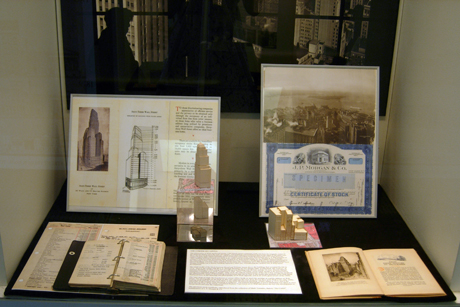
The framed photographs of lower Manhattan were taken in 1912 from the top floor of the newly completed Bankers Trust tower at 14 Wall. �Looking south to the harbor, the buildings on Broad Street and near the waterfront are low-rise. Below, looking northwest are the tall towers that line Broadway, at center, the Singer Building and its wrap-around neighbor the City Investing Company Building, which on their joint completion in 1908 were the tallest and largest�(in volume)�office buildings in the world.�
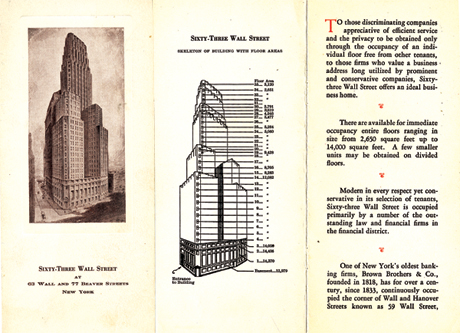
63 Wall Street Marketing Brochure: Sixty-three Wall Street, HRH Construction Collection, The Skyscraper Museum.
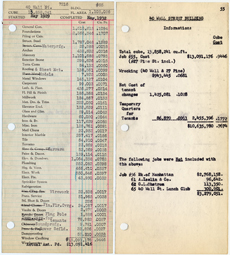
Page reproduction from the Starrett Job Book, Gift of HRH Construction.
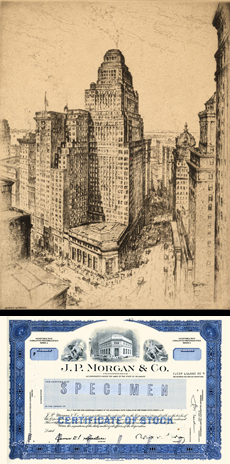
Top: Drawing of 23 Wall Street, pg. 9, From Sheep Pasture to Skyscraper. Reginald Pelham Bolton. Equitable Trust Co., 1926. Collection of The Skyscraper Museum.
Bottom: The specimen stock certificate, reproduced from the collection of Mark Tomasko, depicts "The Corner" headquarters of J. P. Morgan & Co.
NEXT: VIEWS OF WALL STREET BETWEEN BROAD AND WILLIAM STREETS
